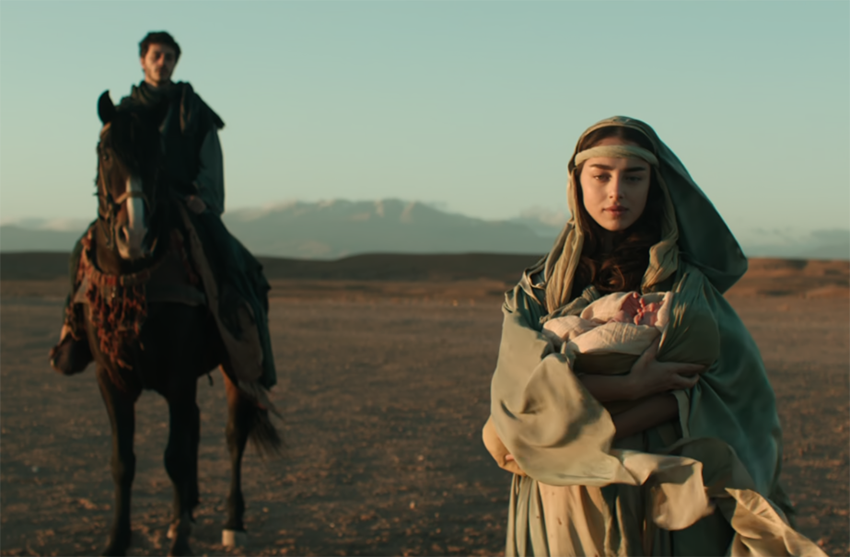These days everybody needs an origin story. Every superhero character has at least one, even the Wicked Witch of the West has one (it’s Wicked, for those who don’t get the reference), so now it’s Mary’s turn. We know in quite a bit of detail from the Bible what Mary went through to have the baby Jesus, but it seems that aside from the song of Mary, known as the Magnifcat, we don’t know about her interior life.
The new Netflix bliblical epic Mary wants to change that. It reframes the Nativity story through the eyes of its central figure, offering a deeply personal and intimate narrative. This fresh perspective allows viewers to experience Mary’s journey as she might have felt it—layered with doubt, fear, and unshakable resolve. The storytelling places Mary firmly at the heart of the tale (as it should), letting her voice and emotions guide the audience through the familiar yet profound events as they unfold.
21-year-old Israeli actress Noa Cohen’s performance as Mary is the cornerstone of the film, capturing her inner conflict and quiet strength with remarkable subtlety. Through her eyes, the arid landscapes of the Holy Land transform from mere backdrops to silent witnesses of her trials and triumphs. The cinematography emphasizes this intimacy, using light, shadow, and wide expanses to mirror Mary’s emotional and spiritual journey.
Directed by D.J. Caruso (Disturbia) and written by Timothy Michael Hayes, the film also stars Anthony Hopkins as the murderous King Herod, on the hunt for the newborn Jesus, protected by Mary who is on the run with Joseph (Ido Tako). Caruso has said the film is a “coming of age” story about a “smart, strong-willed young woman facing monumental challenges: overcoming social stigma, evading a jealous king and bearing the weight of a world-changing destiny.” The director also said that it was “important to us that Mary, along with most of our primary cast, be selected from Israel to ensure authenticity.”
The modern choices in storytelling, such as depicting Gabriel as a shadowy, almost abstract presence and focusing on Mary’s internal struggles, invite viewers to see her as a profoundly human figure. These departures from traditional depictions might be unsettling for some, particularly in their de-emphasis on overt divine interventions. Yet, this approach enhances the humanity of Mary’s experience, making her faith and courage all the more poignant.
Ultimately, Mary is a meditation on faith, resilience, and the weight of an extraordinary calling. It doesn’t shy away from asking challenging questions, prompting viewers to engage with the story in ways that go beyond doctrine or tradition. By letting Mary herself take the narrative reins, the film transforms her story into a relatable and deeply affecting exploration of hope and humanity.
Whether you embrace this reinterpretation or find it provocative, Mary is a bold retelling of a story that feels fresh, despite the familiarity of this story.
The New Testament epic will be out on Netflix from December 6 worldwide.













